 Community Workers
Community Workers 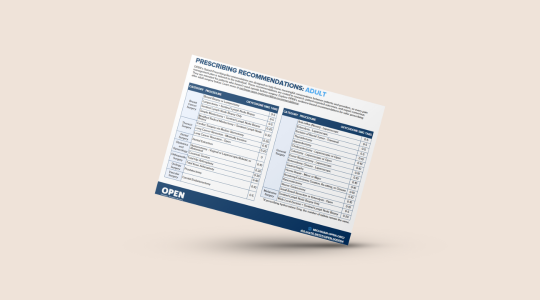
Use OPEN’s evidence-based prescribing recommendations for tailored pain management after surgery in adult patients.
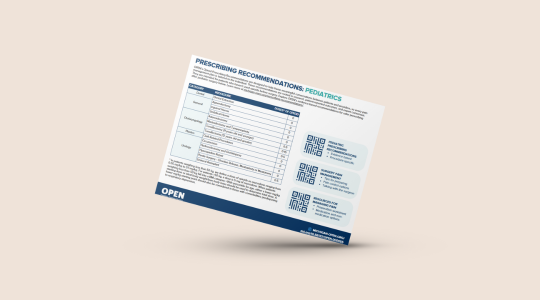
Use OPEN’s Pediatric evidence-based acute care opioid prescribing recommendations after surgery.
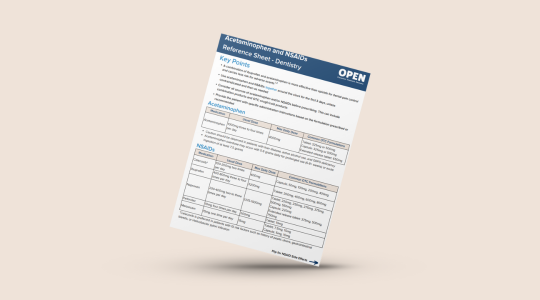
Learn more about prescribing acetaminophen and NSAIDs for pain management after dental surgery.
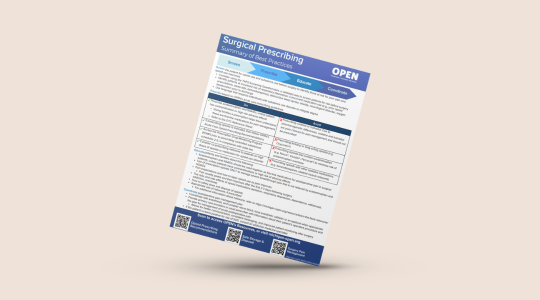
Stay up to date with OPEN’s summary of best practices for prescribing after surgery.
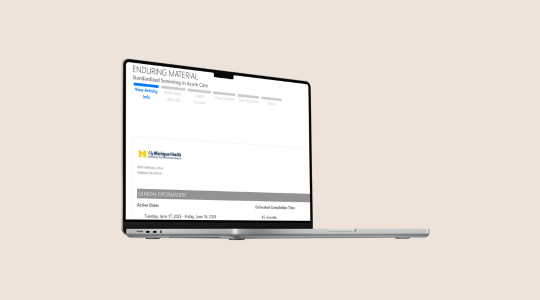
This free, 45-minute CME course will discuss OPEN’s evidence-based work in selecting a screening tool, how to implement a standardized screening process, and ways providers can intervene to connect patients to treatment.
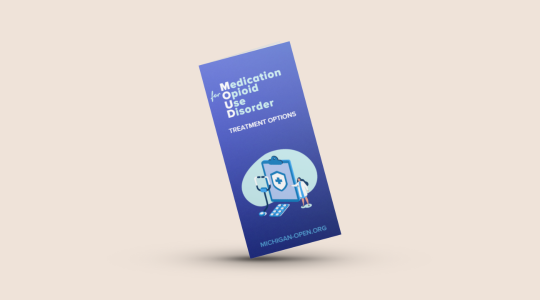
Learn more about Medication for Opioid Use Disorder (MOUD) treatment options.
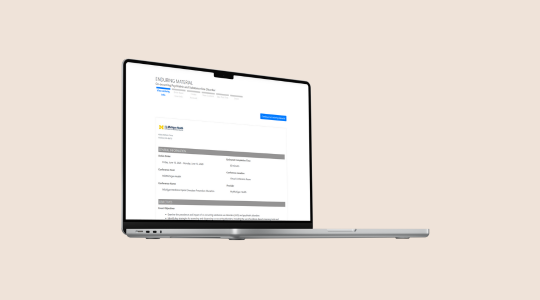
This free, 1-hour CME course will explore the complexities of co-occurring psychiatric disorders and substance use disorders (SUD).
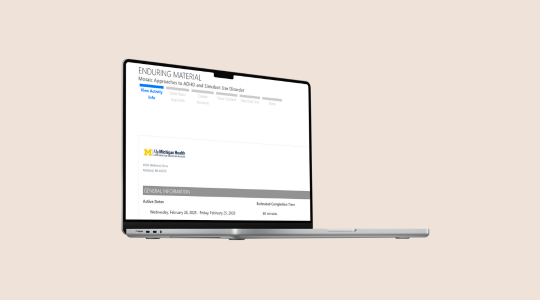
This free, 1-hour CME course will address gaps in knowledge about effective strategies for managing individuals with ADHD and co-occurring SUD, discuss best practices for evaluation, and explore the trajectory of stimulant use disorder in adolescents diagnosed with ADHD.
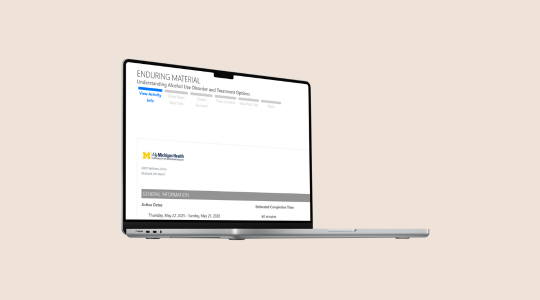
This free, 1-hour CME course will provide an in-depth overview of Alcohol Use Disorder (AUD), including its definition and diagnostic criteria.
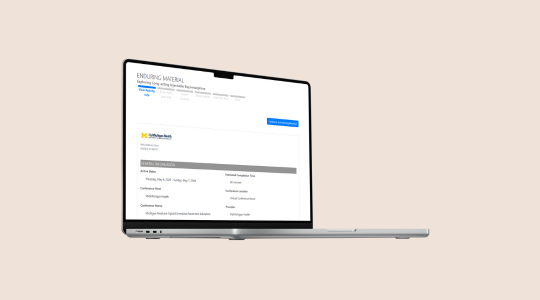
This free, 1-hour CME course will equip healthcare teams with essential information on FDA-approved monthly and weekly injectable buprenorphine formulations for the treatment of OUD, along with guidance on integrating them into clinical practice.
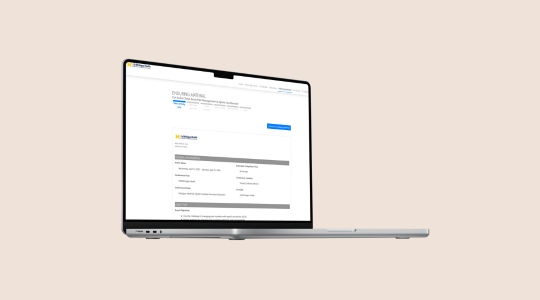
This free, 1-hour CME course will help providers understand general principles and strategies for managing OUD and coordinating care with a specialist.
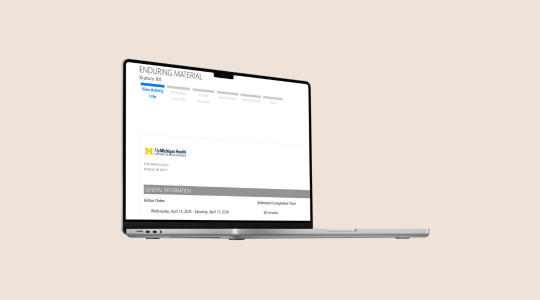
This free, 1-hour CME course will outline the signs and symptoms of Kratom use and how to respond.
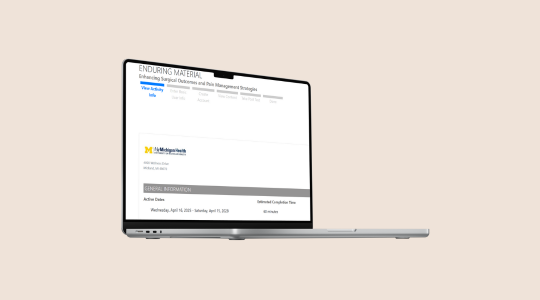
This free, 1-hour CME course will analyze the impact of systemic issues faced in rural healthcare settings related to effective pain management after surgery.
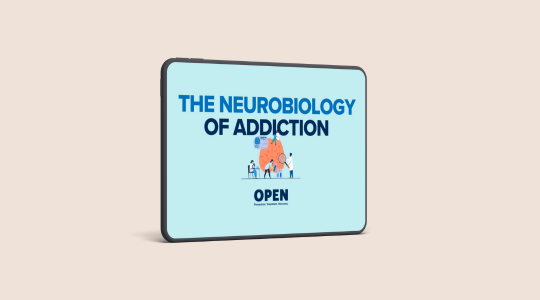
Watch this video to learn how addiction alters the brain and ways to treat through a multidisciplinary approach.
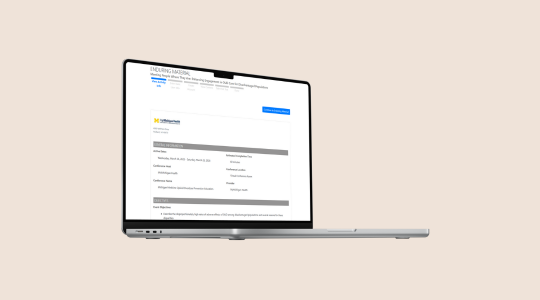
This free, 1-hour CME course will review the data around disparities in OUD outcomes and treatment among disadvantaged groups and discuss clinical approaches and models of care to address these inequities.
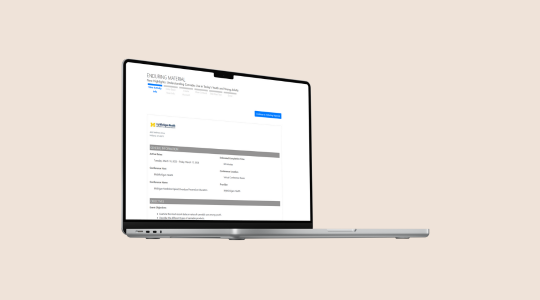
This free, 1-hour CME course will examine the different types of cannabis products and provide recent data on rates of cannabis use among youth and young adults.
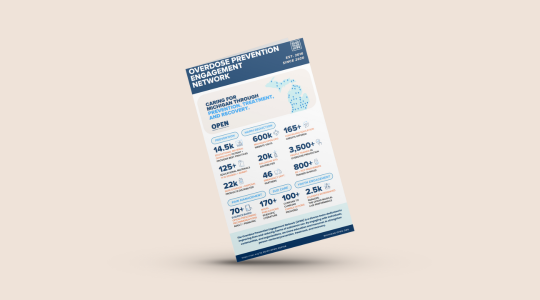
Learn about OPEN’s impact across all of our initiatives since 2020.
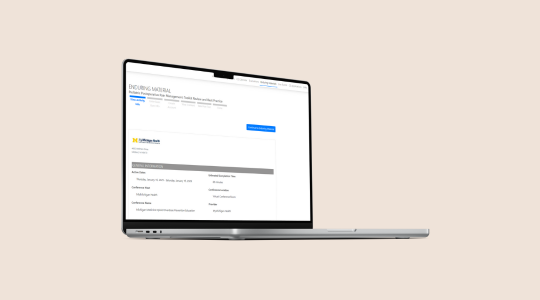
This free, 1-hour CME course will review and share resources for enacting the best practices for prescribing opioids or non-opioid medications for pediatric patients.
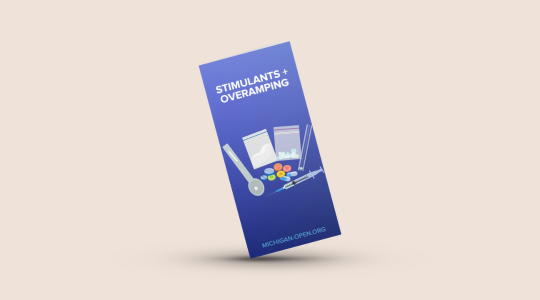
Learn about stimulants, safer use practices, and how to respond to overamping and other health complications.
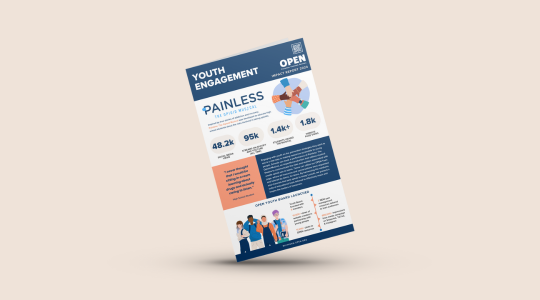
Learn more about OPEN’s impact within our Youth Engagement initiative.
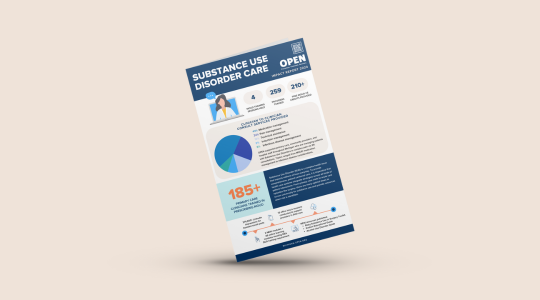
Learn about OPEN’s impact with Substance Use Disorder care.
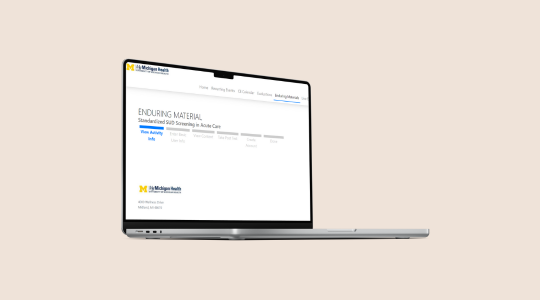
This free, 1-hour CME course will discuss OPEN’s evidence-based work in selecting a screening tool, how to implement a standardized screening process, and ways providers can intervene to connect patients to treatment.
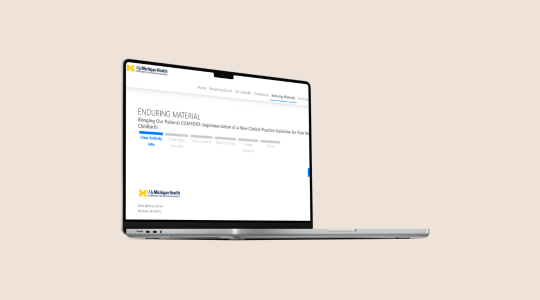
This free, 1-hour CME course will discuss the latest evidence-based clinical practice guidelines for pain management after childbirth, which promotes excellent pain control, reduces harmful opioid prescribing and more equitable, patient-centered care.
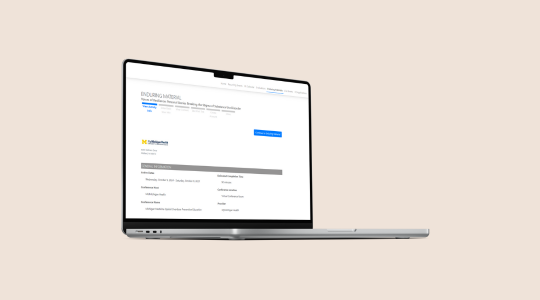
This free, 1.5-hour CME course will discuss stigma and give examples of success stories, recovery journeys, and the importance of seeking treatment for SUD.
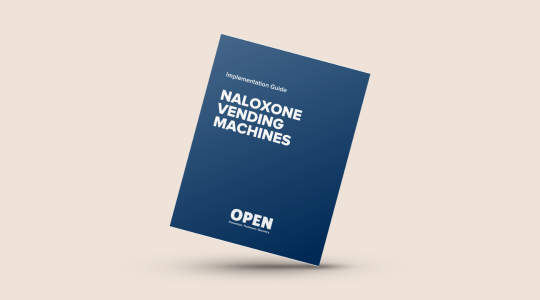
Use this guide to implement a naloxone vending machine at your organization.
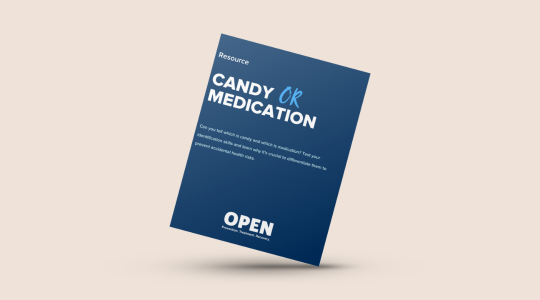
Can you tell which is candy and which is medication? Test your identification skills and learn why it’s crucial to differentiate them to prevent accidental health risks.
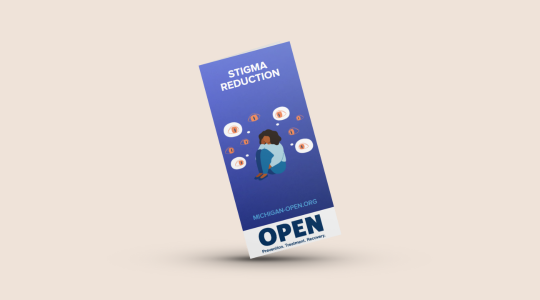
Learn how understanding and addressing stigma can make a profound impact on care, recovery, and wellbeing.
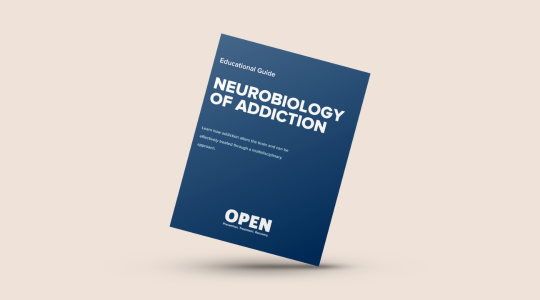
Use this guide to learn how addiction alters the brain and how to treat through a multidisciplinary approach.
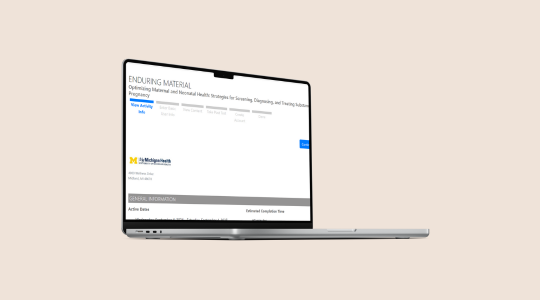
This 1-hour training focuses on actionable strategies for screening, diagnosing, and treating substance use disorder in pregnancy.
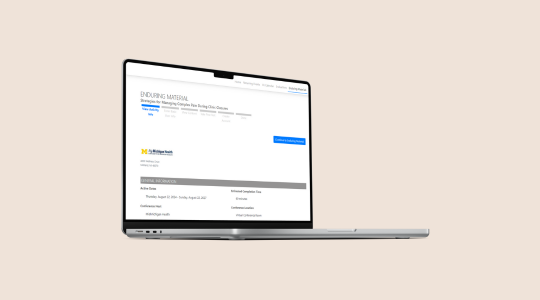
This free, 1-hour CME course focuses on actionable strategies for managing complex pain during clinic closures.
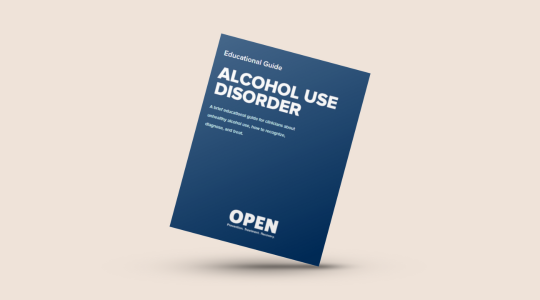
Use this guide to learn more about Alcohol Use Disorder and how to treat it.
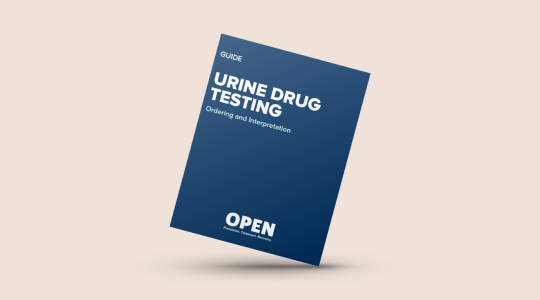
Use this guide to help order urine testing and interpret the results.
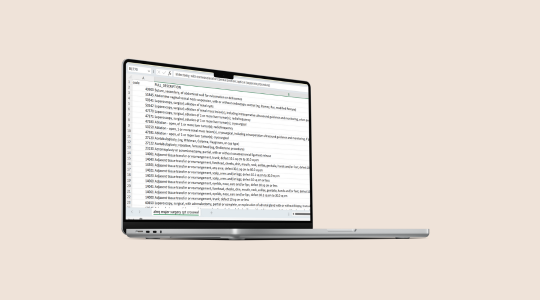
Use this crosswalk to understand the link between individual surgical procedures and all Current Procedural Terminology codes for major surgery in the 2014-2022 AHRQ algorithm.
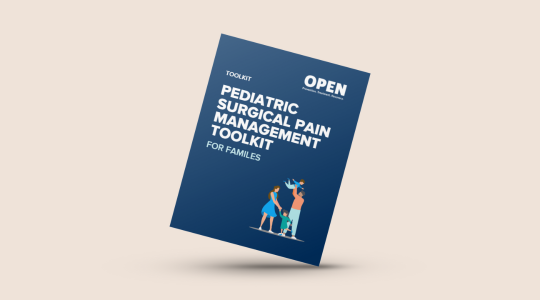
This toolkit will help families prepare their child for postoperative pain management.
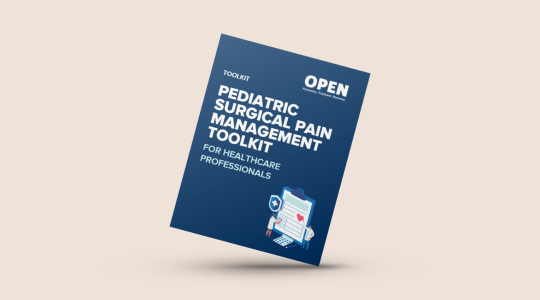
This toolkit will help Healthcare Professionals guide their patient and their family through postoperative pain management.
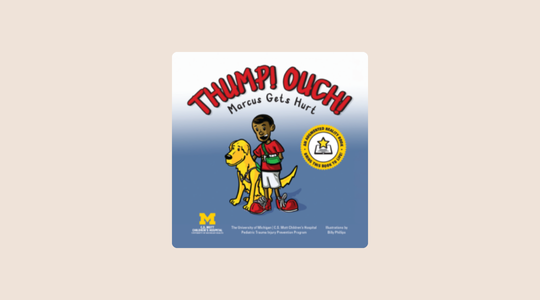
Read Thump! Ouch! Marcus Gets Hurt to help your child feel comfortable managing their pain.
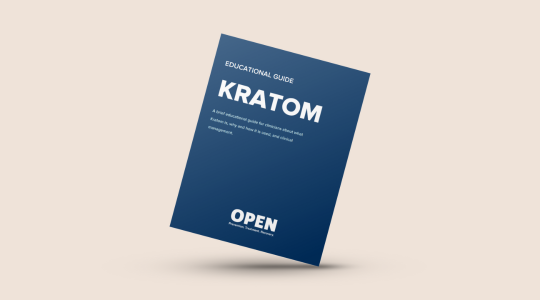
Clinicians can use this brief educational guide to learn about what Kratom is, why and how it is used, and clinical management.
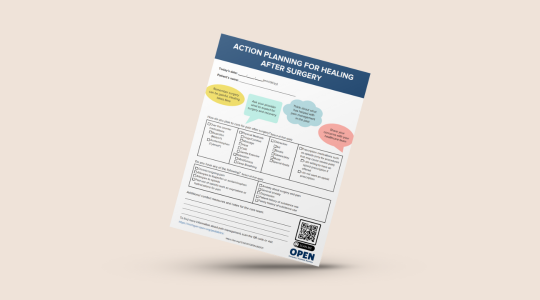
Use this worksheet with your care team to help prepare and manage pain after your surgery.
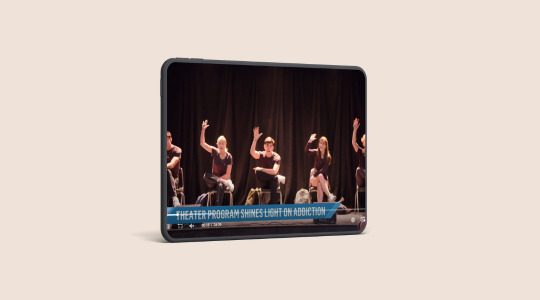
Watch Painless: The Opioid Musical‘s segment on The Today Show.

Listen to the official cast recording of Painless: The Opioid Musical.

This free 1.75-hour CME course will explain and illustrate the fundamentals of medications for opioid use disorder (MOUD) and successfully and safely prescribe MOUD in the Emergency Department.

This free, 45-minute CME course will discuss post treatment Hepatitis C monitoring.
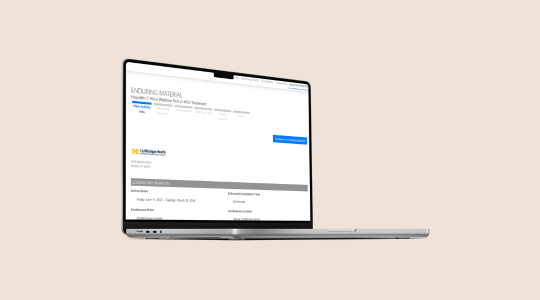
This free, 1 hour CME course will review treatment options and monitoring for Hepatitis C.
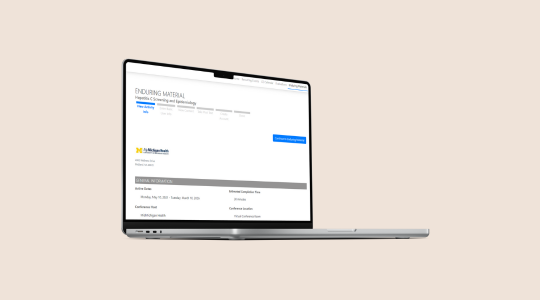
This free, 30-minute CME course will discuss the epidemiology and screening around Hepatitis C.
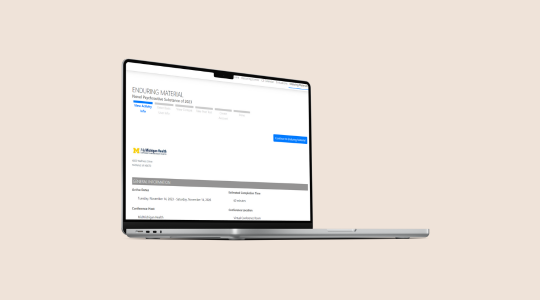
This free, 1 hour CME course will discuss an overview of Novel Psychoactive Substances.
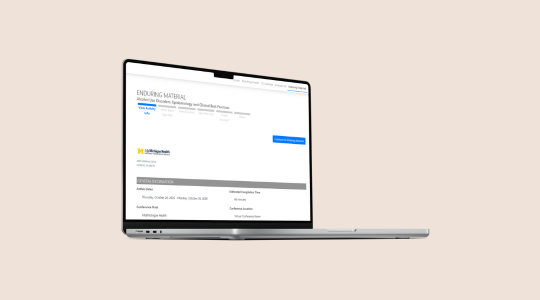
This free, 1 hour CME course will discuss Alcohol Use Disorder including best practices for screening and brief interventions in clinical or community health settings.

This free, 1 hour CME course will discuss what Kratom is and why people use it, diagnosis, and treatment for Kratom use.
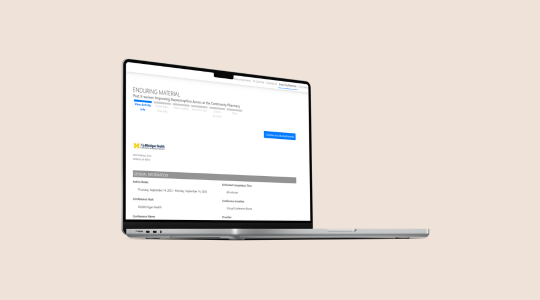
This free, 1 hour CME course will discuss general prescribing practices, barriers encountered by patients and pharmacists, and strategies to overcoming these barriers when dispensing buprenorphine prescriptions.
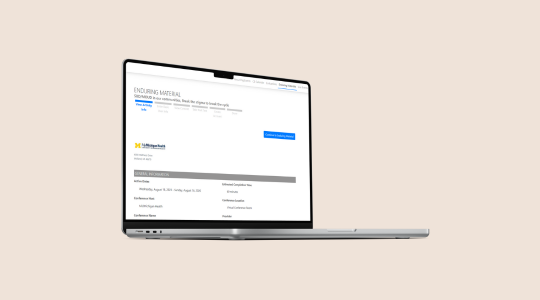
This free, 1 hour CME course will discuss the stigmas associated with SUD and OUD within Michigan communities and steps we can take to mitigate the effects.
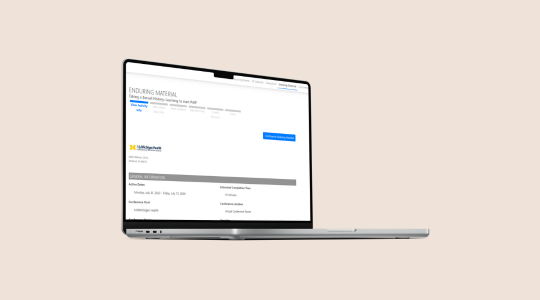
This free, 15-minute CME course will review the importance of PrEP.

This free, 1-hour CME course will discuss the fundamentals of Xylazine.

This free, 1-hour CME course will discuss different types of co-occurring psychiatric and substance use disorders and best practices for management.

This free, 1-hour CME course will discuss the background of GREAT MOMs and treating pregnant people with OUD.
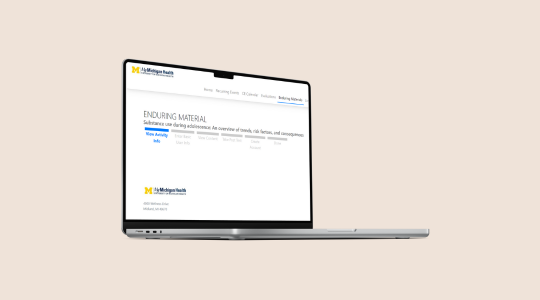
This free, 1 hour CME course will discuss the trends, risk factors and findings of substance use during adolescence.
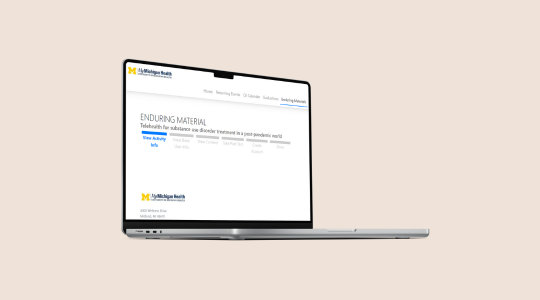
This free, 1-hour CME course will discuss telehealth for SUD treatment, post COVID-19 pandemic.
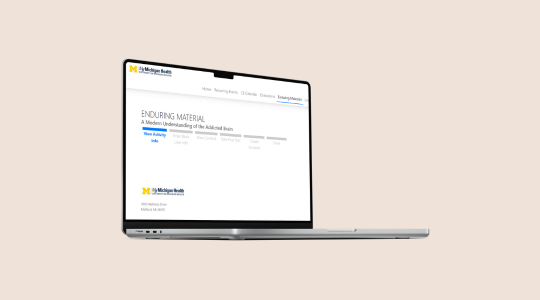
This free, 1-hour CME course outlines the basics the human brain works and how substance use alters normal brain function.
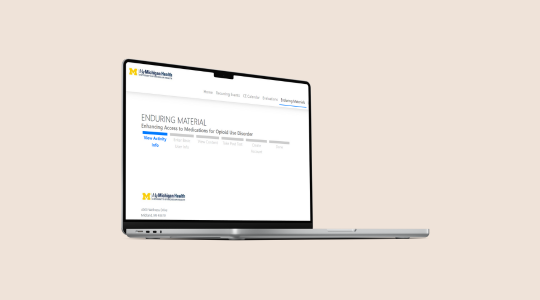
This free, 1-hour CME course will discuss barriers to accessing MOUD and low-barriers practices that can enhance access to MOUD treatment.
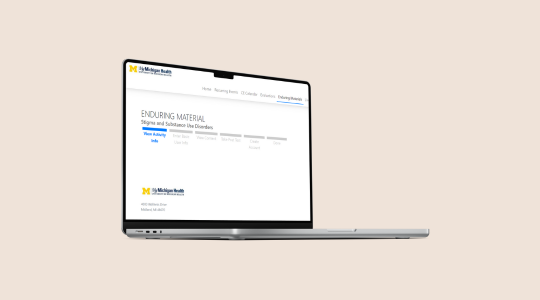
This free, 1-hour CME course will discuss stigma and how this impacts substance use disorder.

Missed a webinar or want to go back and rewatch one? Visit our YouTube playlist to find our past webinars.
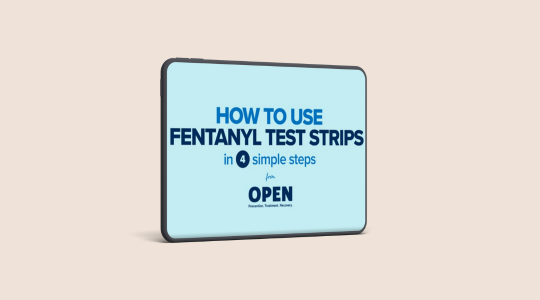
Learn how to use fentanyl test strips to reduce risk of an overdose.
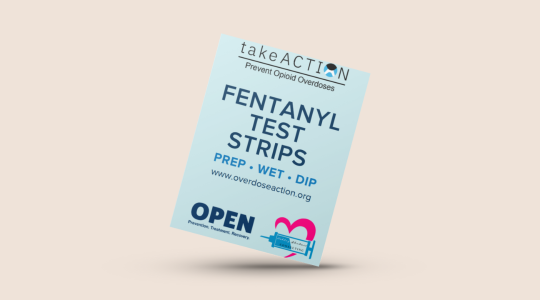
Learn how to use fentanyl test strips to reduce risk of an overdose.
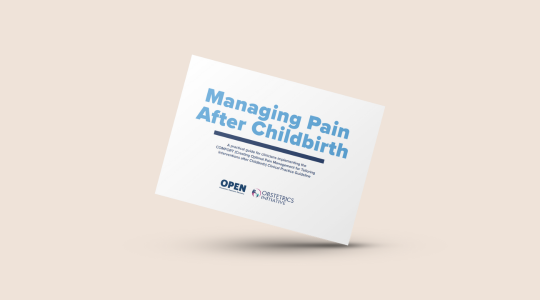
A practical guide for clinicians to learn more about implementing the COMFORT (Creating Optimal Pain Management for Tailoring Interventions after Childbirth) Clinical Practice Guideline.
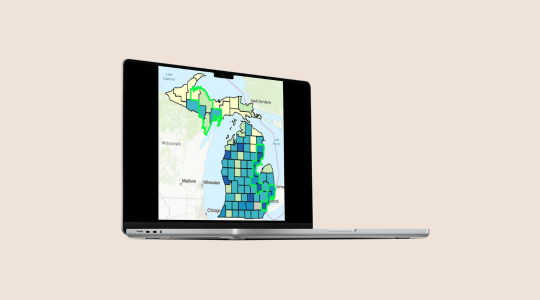
Utilize our new Landscape Map and accompanying whitepaper to help reduce the impact of the opioid crisis.
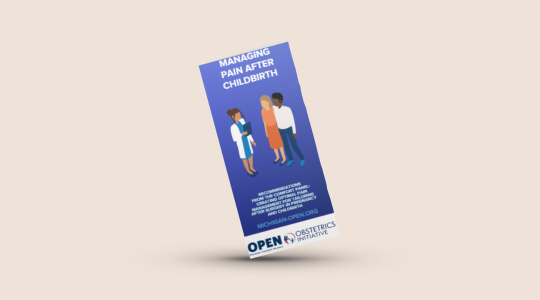
Learn ways to manage pain after childbirth such as: over-the-counter medications, non-medication strategies, and opioids, if prescribed.
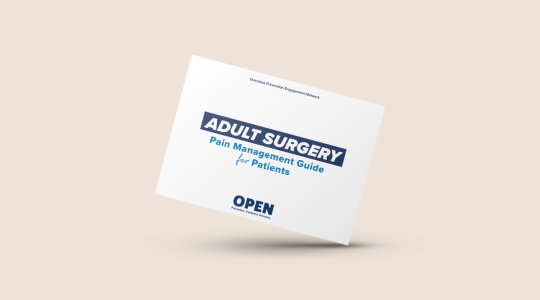
Learn how to prepare for surgery and to help manage pain after surgery.
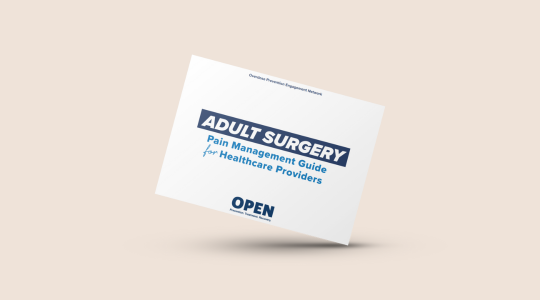
As a healthcare provider, learn evidence-based approaches to help manage your patient’s pain after surgery.
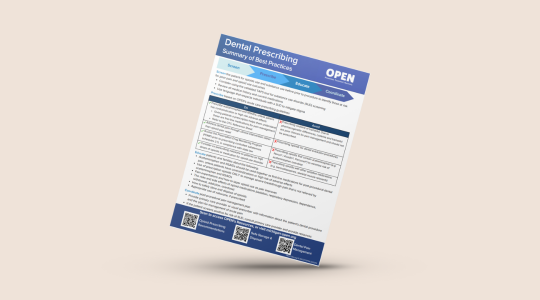
Stay up to date with OPEN’s summary of best practices for prescribing after dental surgery.
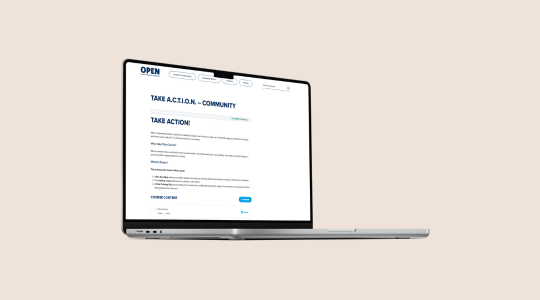
Take our Naloxone Training and learn how to take A.C.T.I.O.N to reverse an overdose.
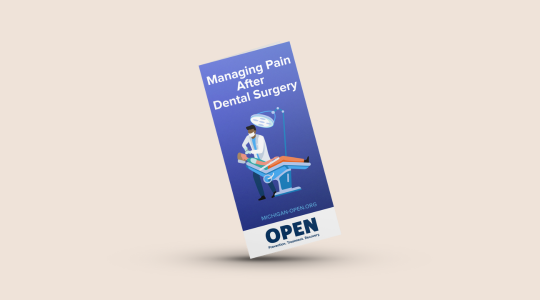
Learn ways to manage pain after dental surgery such as: over-the-counter medications, non-medication strategies, and opioids, if prescribed.
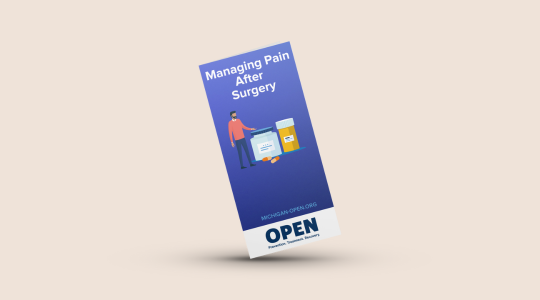
Learn ways to manage pain after surgery such as: over-the-counter medications, non-medication strategies, and opioids, if prescribed.
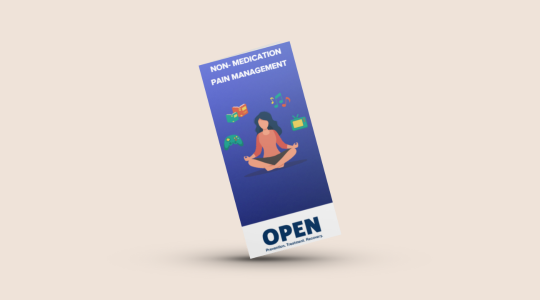
Learn how to help manage or reduce your pain and anxiety through various techniques.

Learn how to help manage your child’s pain and anxiety after surgery.
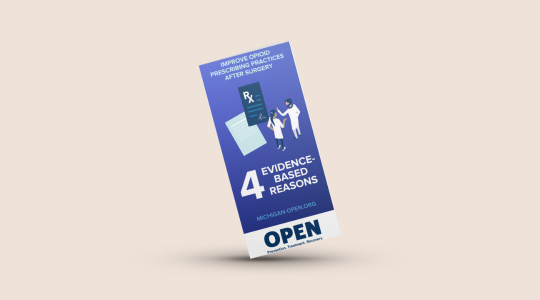
Explore 4 evidence-based reasons to improve opioid prescribing practices after surgery.
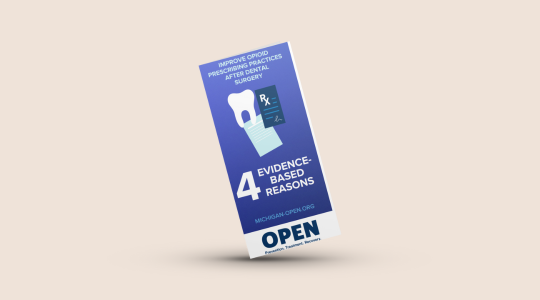
Explore 4 evidence-based reasons to improve opioid prescribing practices after dental surgery.
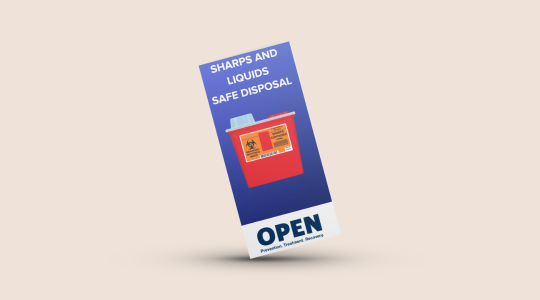
Learn how to safely dispose of needles, lancets, and liquid medications.
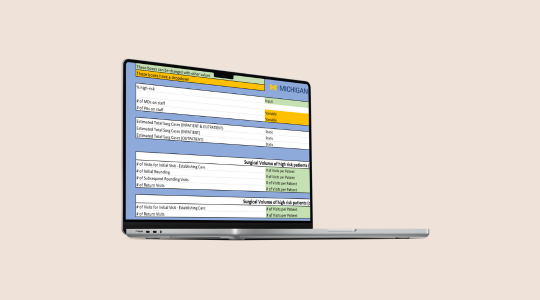
Explore our free financial tool to tailor insights to your organization on the potential costs and benefits of starting a transitional pain service.
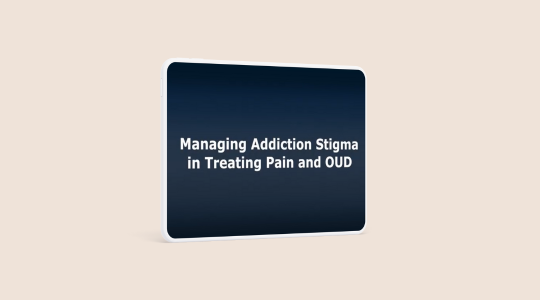
This video details ways to manage addiction stigma while treating pain and OUD.
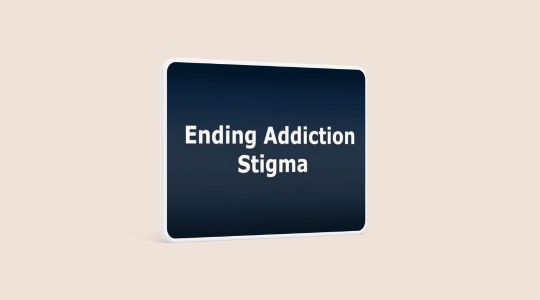
This video will explain the importance of ending addiction stigma and fully supporting OUD patients.
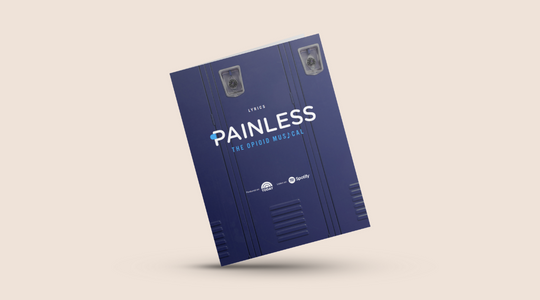
Use these lyrics to follow along with Painless and reference them for discussion about the stories that are told in the musical.
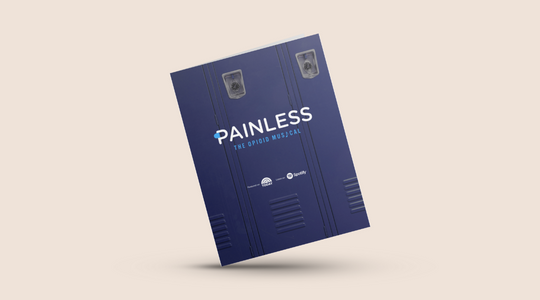
Equip educators with everything they need to effectively bring Painless: The Opioid Musical to life.

Explore OPEN’s process to create and evaluate opioid prescribing recommendations.
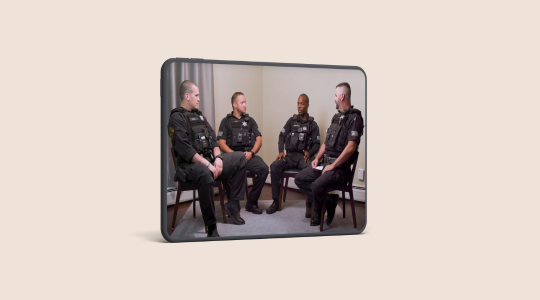
Learn from Law Enforcement Officers as they discuss SUD and OUD.
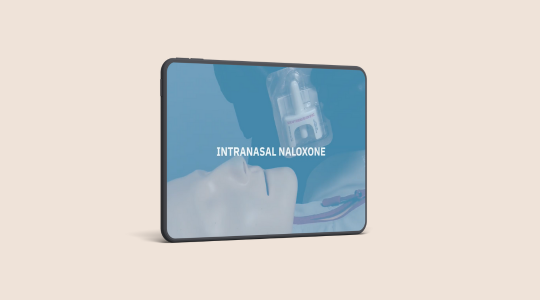
Teach first responders how to use intranasal naloxone.
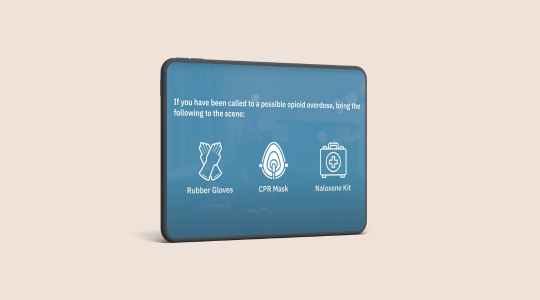
Equip first responders on how to handle an opioid overdose with naloxone.
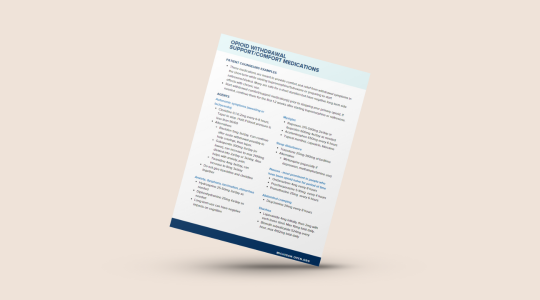
This resource will help providers successfully provide withdrawal comfort and support.
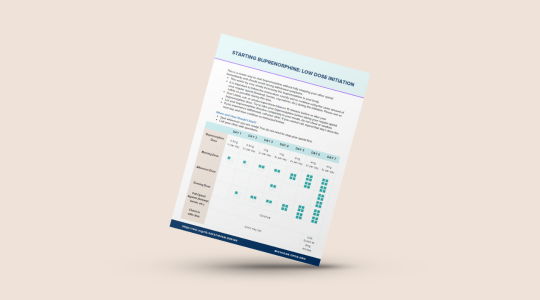
This document offers a guideline to starting buprenorphine at a low dose.
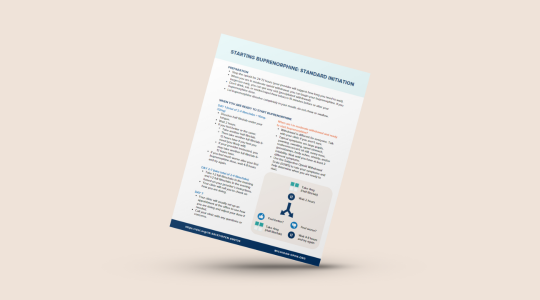
This document is a guideline to starting buprenorphine at a standard dose.
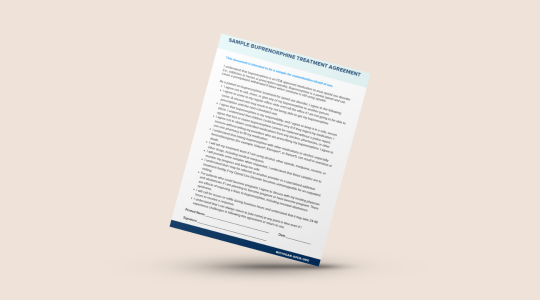
Use this sample agreement as a starting point when prescribing buprenorphine.

Explore the five Levels of evidence to use while making educated determinations about prescribing and care.
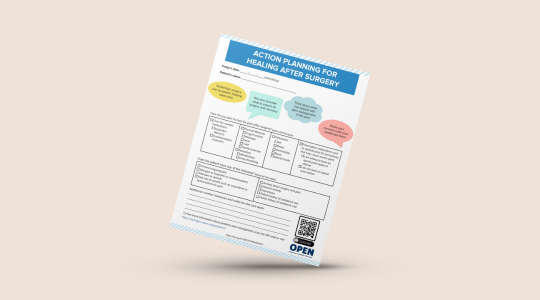
Use and share this worksheet with your child’s care team to help prepare and manage pain after your child’s surgery.
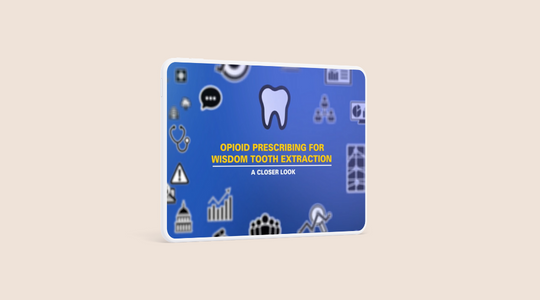
Check out this one-minute video about non-opioid pain management options for children and teens after wisdom teeth removal. Video captions are in Arabic.
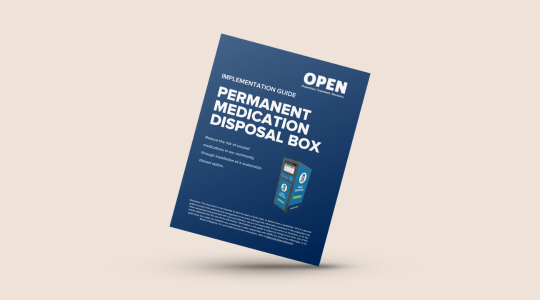
Learn how to implement a permanent medication disposal box program in your community.
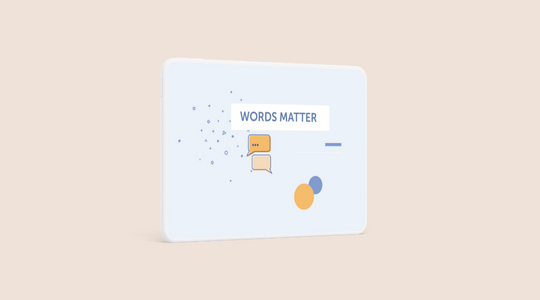
Changing our language improves outcomes for those struggling with addiction. Watch this brief video to learn more.
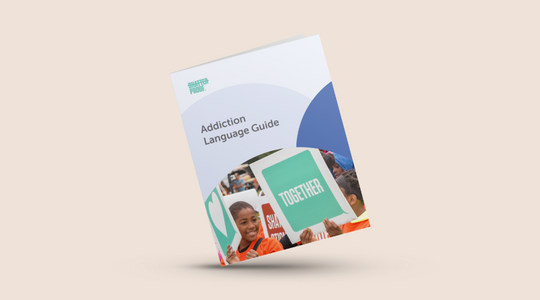
Comprehensive addiction language guide to reduce use of stigmatizing language.
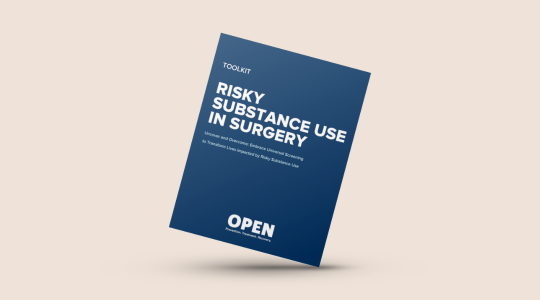
Learn more about how risky substance use impacts patients having surgery and best practices for identification and coordination of care for those with risky use.
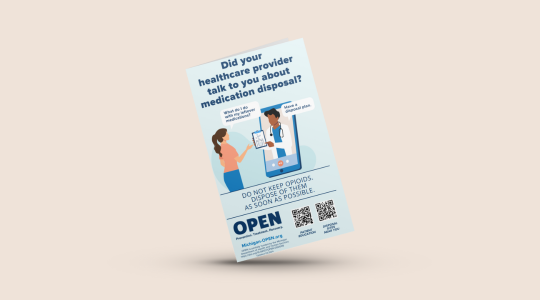
Learn how to facilitate discussion on safe disposal of unused opioids with your healthcare provider.
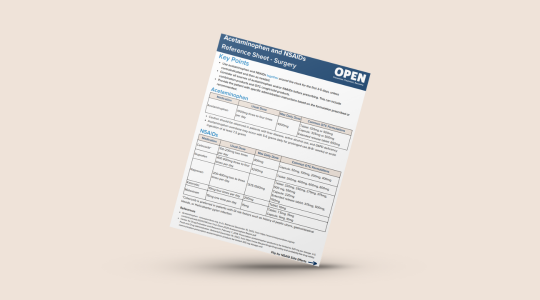
Learn more about prescribing acetaminophen and NSAIDs for pain management after surgery.
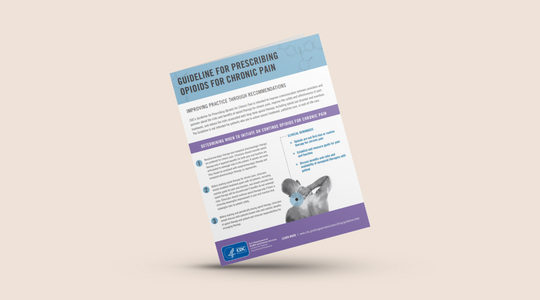
Intended to improve communication between providers and patients about the risks and benefits of opioid therapy for chronic pain, improve the safety and effectiveness of pain treatment, and reduce the risks associated with long-term opioid therapy, including opioid use disorder and overdose.
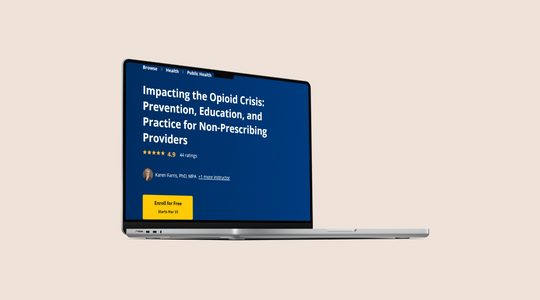
This free, 16-hour CE course will empower non-prescribing providers to directly impact the opioid epidemic through increased knowledge and tools to transform practice and policies.
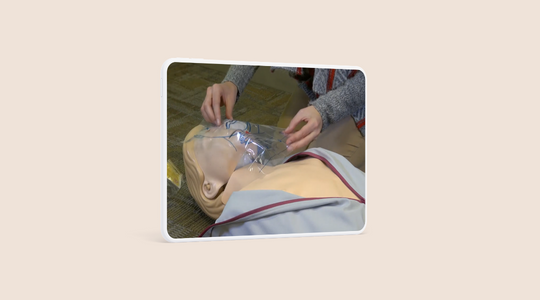
Learning to perform rescue breathing on someone who is experiencing an opioid overdose.
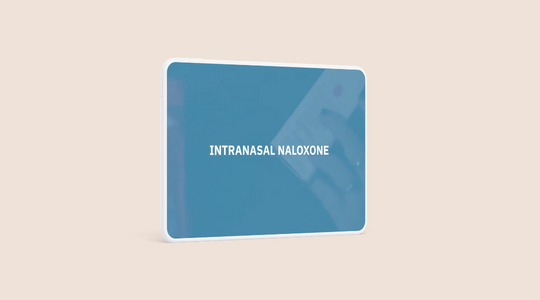
Learn to use intranasal naloxone to reverse an opioid overdose.
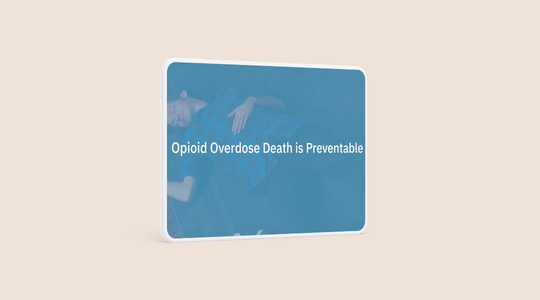
Naloxone training for community laypeople.
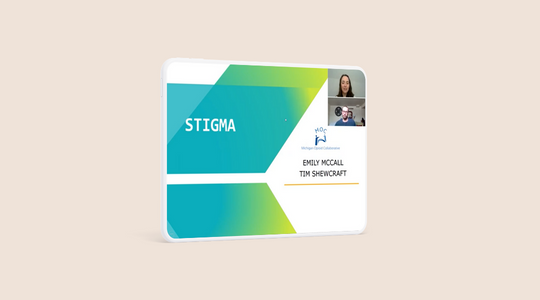
Emily McCall and Tim Shewcraft from the Michigan Opioid Collaborative (MOC) share information about stigma and MOC’s resources for MOUD providers. Tim, a peer recovery coach, shares his personal experience with stigma and the impacts that provider stigma can have on a patient’s OUD treatment.
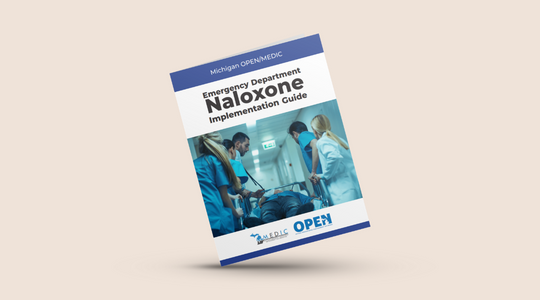
Learn how to facilitate and implement unique and tailored naloxone distribution programs in your Emergency Department.
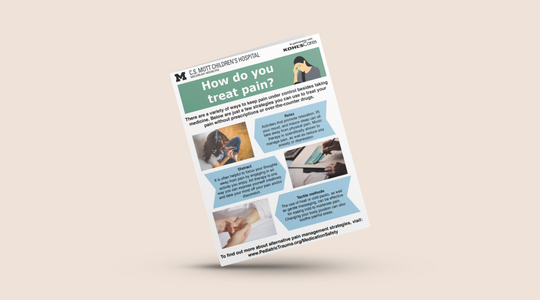
A one-page flyer created by the Pediatric Trauma Group at C.S. Mott Children’s Hospital focused on non-medication options for teens.
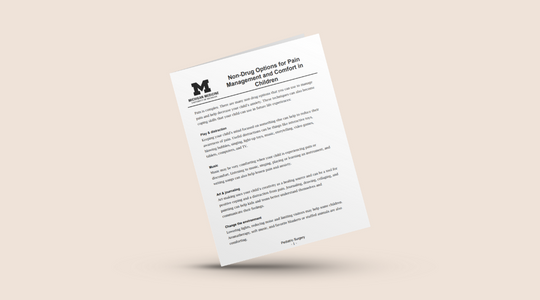
A document created by Michigan Medicine Child Life providing greater detail on non-medication strategies.
Help keep track of the use of medications your child is taking after surgery.
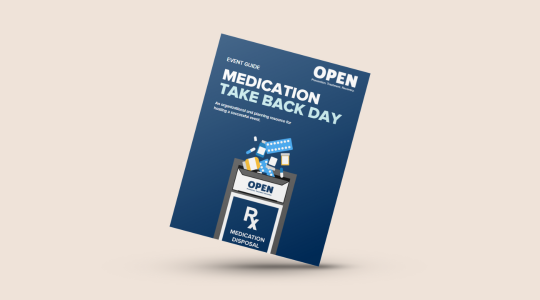
Learn how to successfully host a Medication Take Back Event in your community.
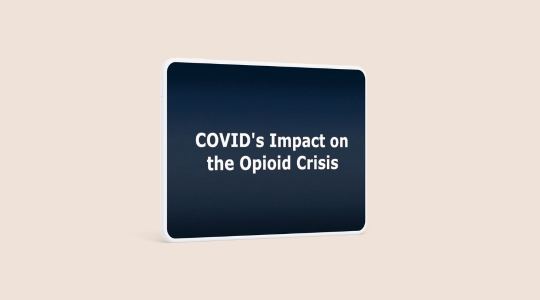
This video will discuss the impact of COVID-19 on the opioid crisis.
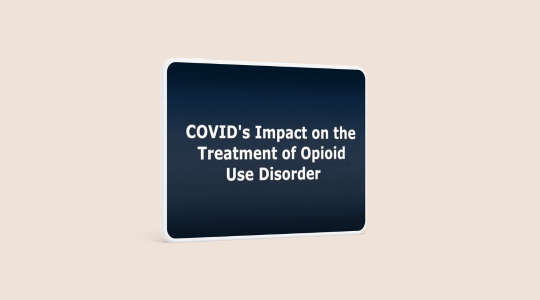
This video will discuss the impact COVID-19 had on the treatment of Opioid Use Disorder.